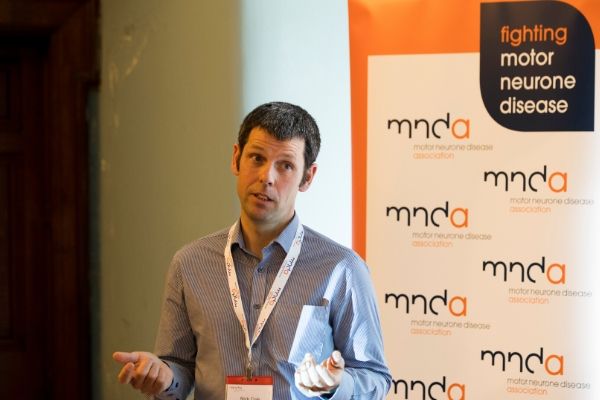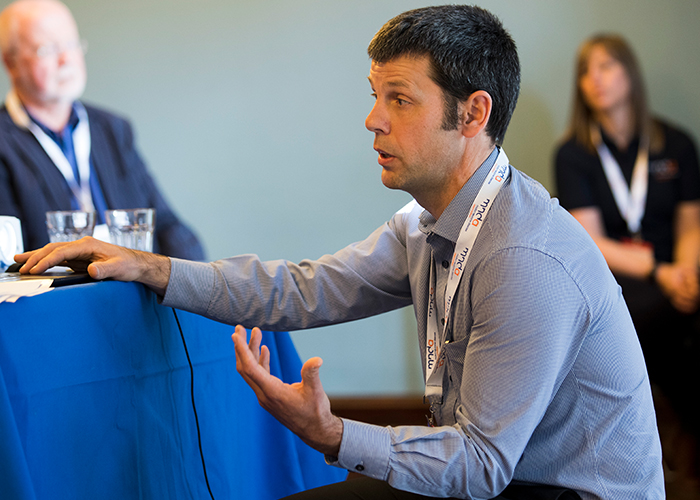The MND Association’s Head of Research Dr Nick Cole brings years of research pedigree to Cure Finders – and it all started with fish! He contributed to bringing a number of treatments to clinical trial in Australia, and now he’s proud to be helping to steer the future of MND research here in the UK.
“It’s amazing how many people are working in MND research who are absolutely at the top of their game,” he says. “They might not be household names, but they are absolute geniuses.”
I really love science – the idea that you can use sensible, logical processes to answer questions, and that you can answer questions that have never been answered before. I find that really exciting.
I’ve always been good at tinkering with things, like building car engines and making stuff. And in some ways, a lot of the science I’ve done over the years has involved messing around – experimenting with fish eggs or building equipment to make things work.
A fishy business
I grew up in Blackpool and went to university in Liverpool. I did an honours year in Marine Biology which included a project looking at whether you can treat fish lice with nicotine. It was a weird project, but it got me into working with fish – using them as models to look at muscle development, understanding how genes make things happen. That became my specialism.
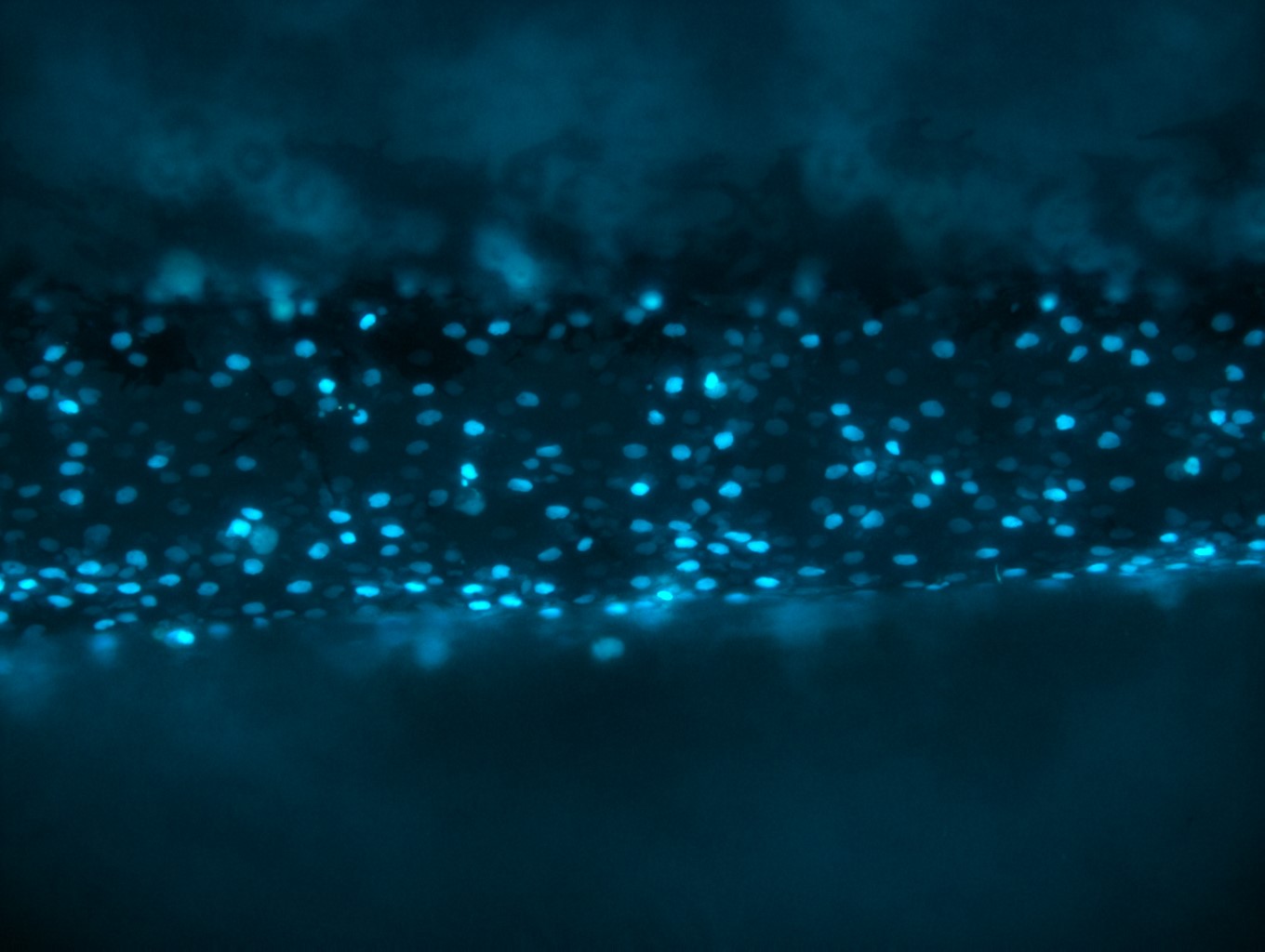
Close up of the FUS protein, one of the genes that causes MND, under the microscope.
From there I went out to Australia to work on limb development and evolution, including work looking at muscular dystrophy, and then on to Sydney University to set up my own lab and lecture in anatomy. That’s where my interest in MND started.
Building a reputation
While I was in Sydney, I met Professor Garth Nicholson, who’s one of the godfathers of MND research.
He said, “I’ve been working with MND patients in the clinic for 30 years and I’ve not seen much progress. There’s only been one therapy, and it’s not really that effective. We’d love to know more about the disease, how it works, the mechanisms. I’ve seen your work with zebrafish and it looks promising… do you think you could do something with MND?”
I told him that I didn’t really know what MND was but that I’d have a look and see what I could do.
We read up and saw there were a couple of genes that were key to it. I started applying the technology I’d been using – making fish that had MND, and labelling the cells with the MND genes in green so we could see where they went.
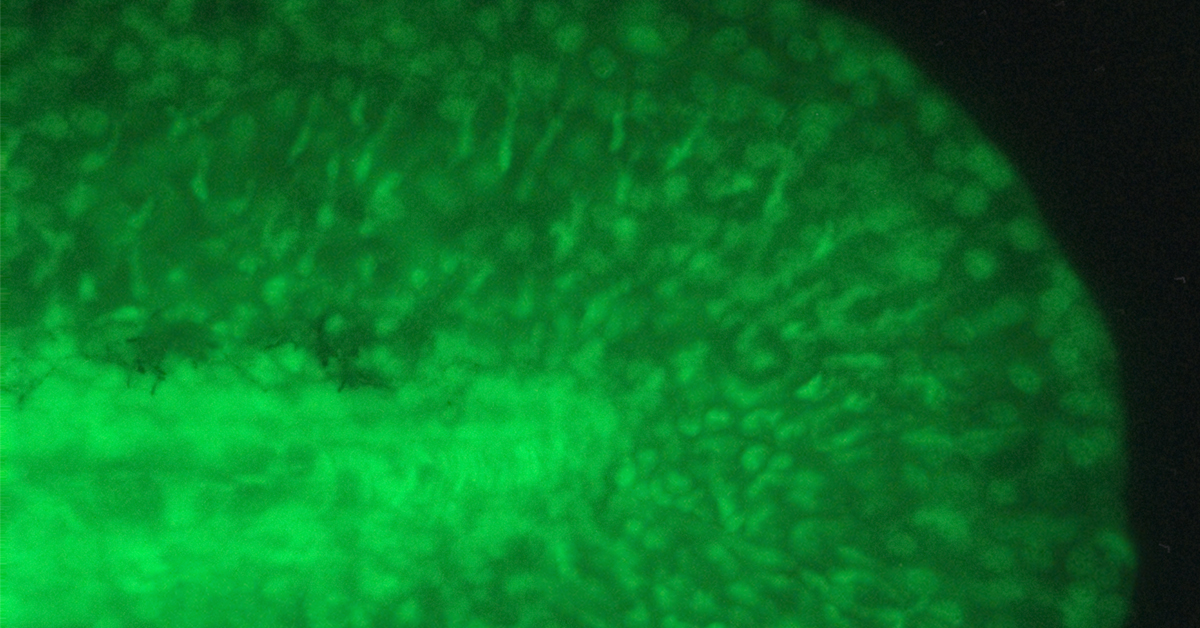
The FUS protein highlighted in green, this time carrying a mutation that we know causes MND.
Then one day Professor Roger Chung knocked on my door. He told me he had had an idea and they really wanted me to join them.
They were building a research centre and were looking for five group leaders with different skill sets to work together. And so I was invited to set up the lab at Macquarie University, just across the Harbour Bridge in Sydney.” They got us all together, alongside legendary clinician, Dominic Rowe, and asked us to draw up some plans. They had a building with an empty floor and a blank chequebook – it was so exciting.
The clinic there cares for about 10% of Australia’s patients. Part of the aim of the initiative was to get research translated from the lab into treatments in the clinic and so we were set the goal of getting two clinical trials running within five years. We managed to do it – one of them is the Lighthouse Trial for a new anti-viral drug that the MND Association is helping to fund.
During my time there, I’d come into contact with people who had MND because of the close connection between the lab and the clinic. You’d see people’s journey unfold. Seeing that was the only motivation I ever needed to get up in the morning.
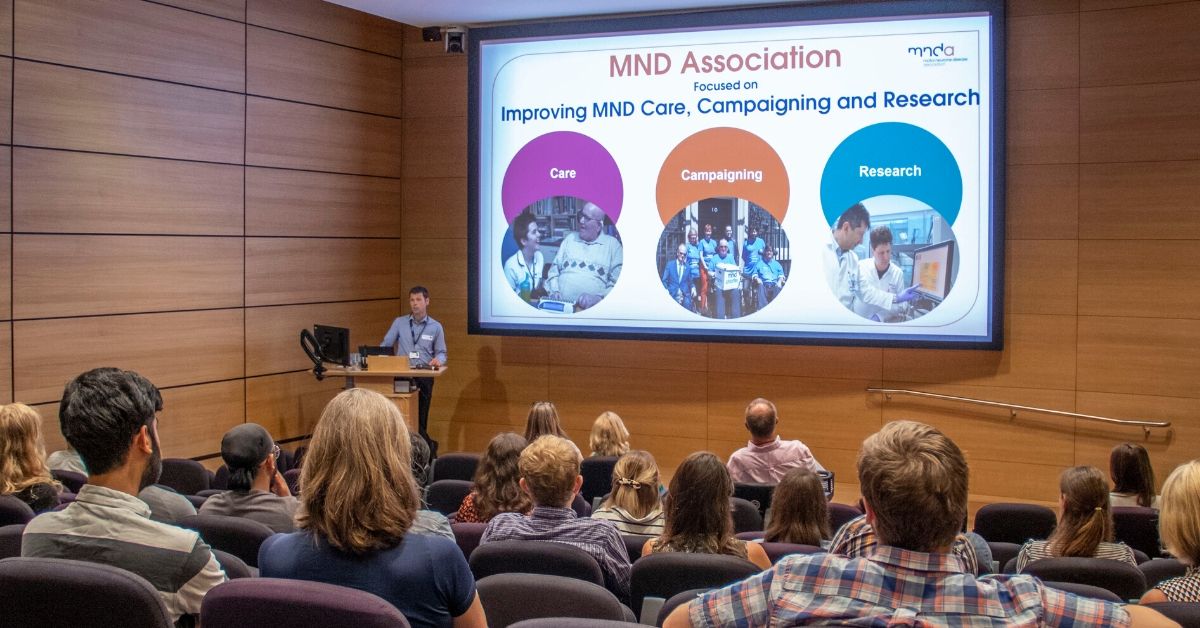
Dr Nick Cole speaking about MND research at an event on behalf of the MND Association.
Coming home
I moved back to the UK in 2017 to be closer to our families. But I was really reluctant to leave – there was so much exciting research happening, I loved Australia and I’d made so many amazing friends. I couldn’t face the thought of leaving without my future having something to do with MND.
I was looking for research jobs in the UK, but then the Head of Research role at the MND Association came up. I can’t tell you how stoked I was to get the job and to be continuing my commitment to MND. The role was a perfect fit for me and it truly felt like it was meant to be.
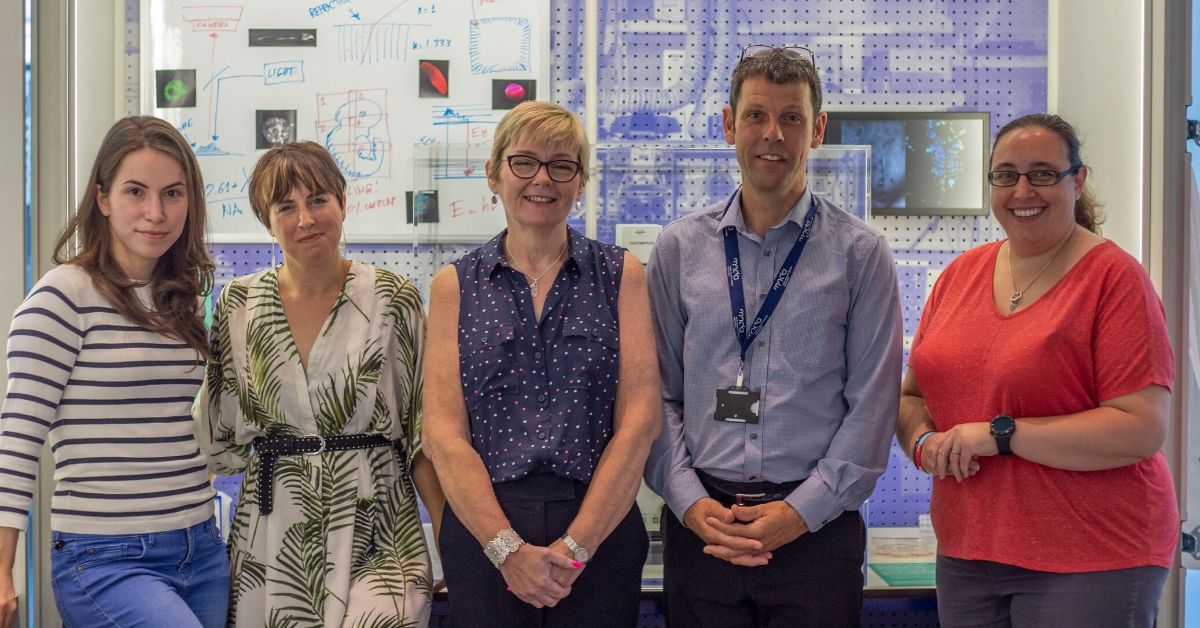
Dr Nick Cole with some of his colleagues from the Association.
I miss life in the lab, but it’s amazing to have the opportunity to direct the research and having a positive influence on the future of it. My boss, Dr Brian Dickie, is a great person to work for. He’s got so much experience, and he’s also so generous with his time. It’s a challenging role, but I get plenty of support.
I live with my family down in Devon now, but my office is in Northampton. This meant I used to have to stay away from home for a lot of the week. Hybrid working now means I can spend more time with my wife Gen, my three children – and our dog, Vegemite – while still doing the work I love.
It’s frustrating that there won’t ever be enough hours in the day, or enough money to fund every project, but the future of MND is looking brighter than ever. Technology has been a huge part of the progress we’ve seen so far, meaning we can now use gene therapy to treat diseases caused by genetic mutations. That’s really significant – not just in our field, but for all science.
Some of these very clever people who have worked out how to do that stuff can now translate it into human biology – it’s really cool.
We still have some way to go before we find a cure– but there must be an answer. I’m confident we will crack it, with your support.
Research idols
It’s amazing how many people are working in MND research who are absolutely at the top of their game – absolute geniuses. They should be getting more recognition for that quality. People hide their light under a bushel and keep going.
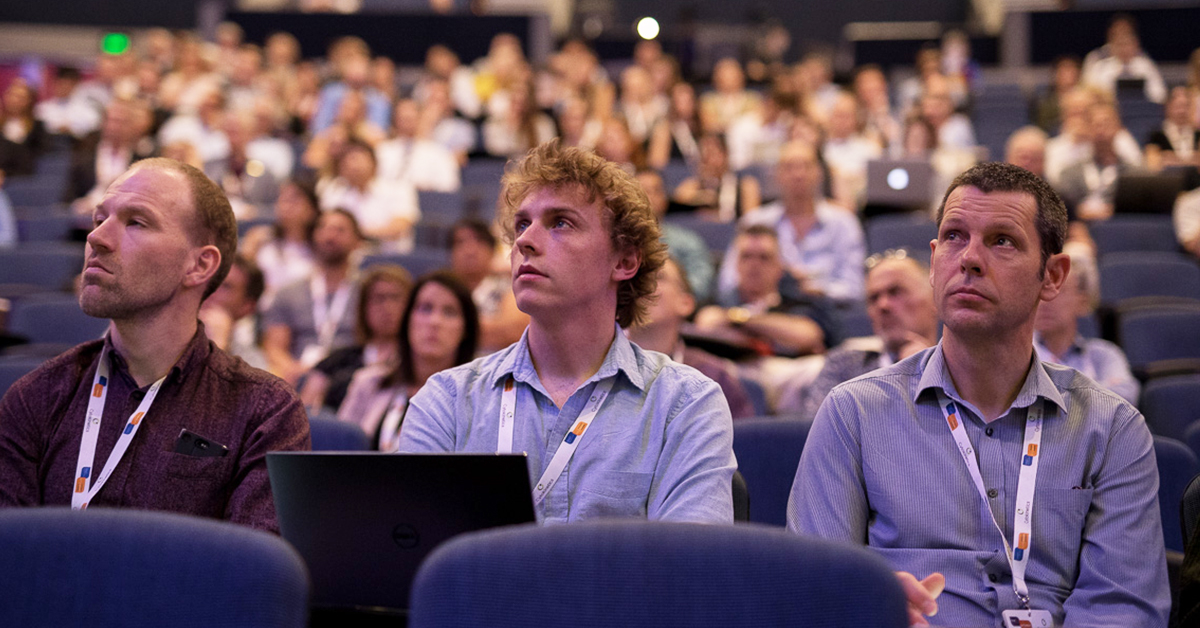
Dr Nick Cole at the 30th International Symposium on MND/ALS in Perth in December 2019.
But guys like Gareth, Janine and Rickie, who you can get to know as a member of Cure Finders, are really inspiring. They’ve got so many incredible ideas, but they’re also kind, generous and great to work with.
And their work simply wouldn’t be possible without your support. On behalf of the MND Association, thank you so much.
